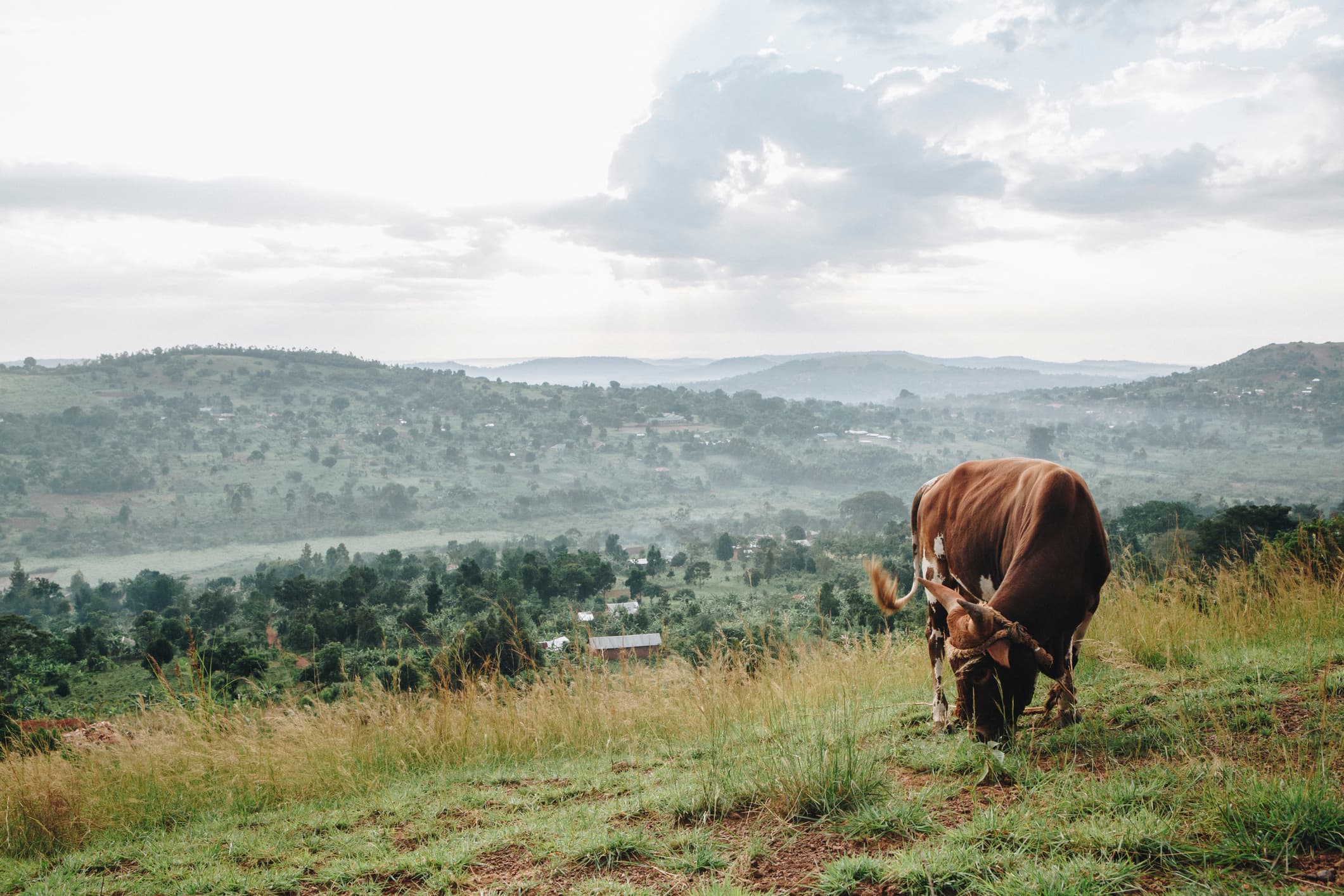Blessed with a wide variety of landscapes, the African country of Uganda produces everything from bananas and coffee to tea and cocoa.
Indeed, its land plays a big role in its economy: the Uganda National Household Survey for 2016/17 found that 65% of the country’s working population were involved in the agriculture, forestry and fishing sectors.
And while these areas of the economy employ people, their by-products and waste-streams could also have a part to play when it comes to encouraging the use of sustainable energy.
Vianney Tumwesige is managing director of Green Heat International, a firm which wants to take the waste produced from sectors like agriculture and then use it to generate products such as fertilizer and biofuel.
He explained to CNBC’s “Sustainable Energy” that many people in the country worked as farmers growing crops.
“The crops are used for food and the waste that the farmers generate, we use it to make energy,” he said.
Green Heat harnesses this waste in a number of ways. Solid waste products, such as charcoal dust and banana skins, are used to produce briquettes, while the use of technology such as biogas digesters allows people to turn waste into products like biofuel and fertilizer.
With a fast growing population in Uganda, Tumwesige said there was “more demand for energy, for cooking, transport, running the industries. We feel we need to have alternative fuels to support the growing population.”
In one community people are using the kit provided by Tumwesige’s company to produce fuel from animal waste.
Maria Nantege, from the Grail Centre, which is located in the capital city of Kampala, said that two cows and two calves there were being used to generate gas.
“We are taking … animal manure from the cow and the manure is mixed with urine,” Green Heat’s Tumwesige went on to explain.
“We mix it with water and we put it in the biogas system, which is at the back of the farm,” he added, describing the biogas system as a large piece of infrastructure “built in the ground.”
“When waste comes from the mixing point, it flows to a digester. And after a couple of days, gas is generated. Gas goes through a gas meter and it flows to the kitchen.”
Over a stove in the Grail Centre’s kitchen, Nantege sought to highlight some of the benefits brought about by the biogas system.
“It is economical, because … the money we would have used to buy firewood, we use it for another thing.”
For Tumwesige, the satisfaction of seeing the effect of his work first hand is important.
“As a child, you’re growing up, you’re seeing problems, but you do not solve them,” he said. “But as you grow up, you learn that certain problems can be managed better,” he added.
“Coming back to this facility makes me proud. Each time I see the waste being used to make biogas, it gives me a lot of strength and keeps me motivated to keep working more on these projects.”
Could people in other parts of the world produce their own energy in the way people using tech like that provided by Green Heat are?
“If you have the feedstock to do it, if you have the sun, if you have the biomass, yes, you can do it,” Olivier Dubois, senior natural resources officer at the Food and Agriculture Organization of the United Nations (FAO) told CNBC.
“This example is a great example,” Dubois, who also co-ordinates the FAO’s program on energy, added, noting that the FAO had, “worked a lot on what we call integrated food energy systems, which is exactly what this gentleman is doing.”
“If you want to replicate, multiply this example, it’s great to have a champion,” Dubois went on to state.
Potential is one thing, but getting the right backing is another. “He may be followed by a couple of people but you need policy support, you need incentives, you need credit to help the people who want to do that,” he added.
